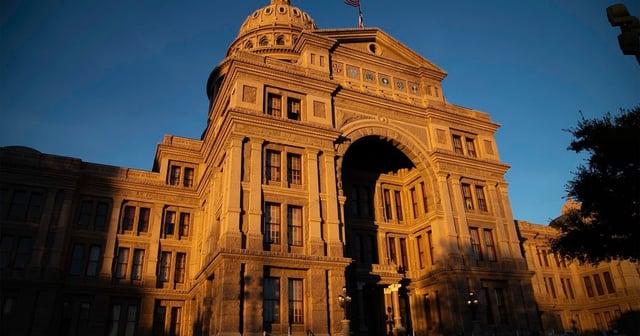On Texas Time: The Never-Ending Debate Over Daylight Saving Time

| submitted by /u/zsreport [comments] |
Twice a year, Americans engage in the same tired ritual—changing their clocks forward or backward, complaining about it for a few days, and then moving on. But what if we could end this practice once and for all?
That’s exactly what the Sunshine Protection Act aims to do. If passed, it would make Daylight Saving Time (DST) permanent, meaning no more clock changes—ever. The idea has gained bipartisan support, and the Senate even passed the bill unanimously. But as history has shown, changing the time system is far easier said than done.
The Case for Permanent Daylight Saving Time
Proponents of permanent DST argue that longer evenings are better for everyone. Who wouldn’t want more daylight after work or school? More time for outdoor activities, safer roads in the evening, and even economic benefits for businesses that rely on foot traffic. After all, people are more likely to shop, dine out, or exercise when the sun is still shining.
For those who despise early sunsets, keeping DST year-round sounds like a dream. No more 5:30 PM darkness in the winter. No more scrambling to finish errands before nightfall. And let’s not forget, changing clocks is a hassle—studies have even linked it to an increase in heart attacks, car accidents, and workplace injuries in the days following the switch.
The Downsides: Are We Ready for Dark Mornings?
But not everyone is on board. The biggest concern? Morning darkness. Under permanent DST, the sun wouldn’t rise until as late as 8:30 AM in some places during winter. In Texas, for example, many cities wouldn’t see daylight until nearly 8:20 AM in January and February.
Imagine sending kids to school in the dark, commuting to work before sunrise, or dealing with groggy mornings that feel endless. Historically, people have hated this. When the U.S. tried permanent DST in the 1970s, it was so unpopular that Congress reversed it within two years.
The Political Angle: Could “Owning the Libs” End DST?
Ironically, one of the most effective ways to push this change might not be through logic or science—but through politics. Some online commenters have joked that the best way to get Texas to eliminate DST is to convince conservatives that Democrats love it.
“I heard the Dems really hate legal weed and public education. Greg, if you’re reading this, please own the libs harder,” one user quipped. Others suggested that if Daylight Saving Time were labeled as “woke”, it would be abolished overnight. Another joked that drag brunches wouldn’t exist without DST, which should be reason enough for some lawmakers to get rid of it.
So, What’s the Right Move?
There’s no perfect solution. Keeping Standard Time year-round would mean brighter mornings but earlier sunsets. Sticking with Daylight Saving Time would give us longer evenings but darker mornings. Splitting the difference—changing the clocks by just 30 minutes and never switching again—has even been floated as a compromise.
Regardless of what happens, one thing is clear: Americans are tired of changing the clock. Whether we end up with permanent DST, permanent Standard Time, or another decade of debating, it’s time for lawmakers to finally settle this once and for all.
Until then, don’t forget to change your clocks this March—and brace yourself for the same argument again in November.





